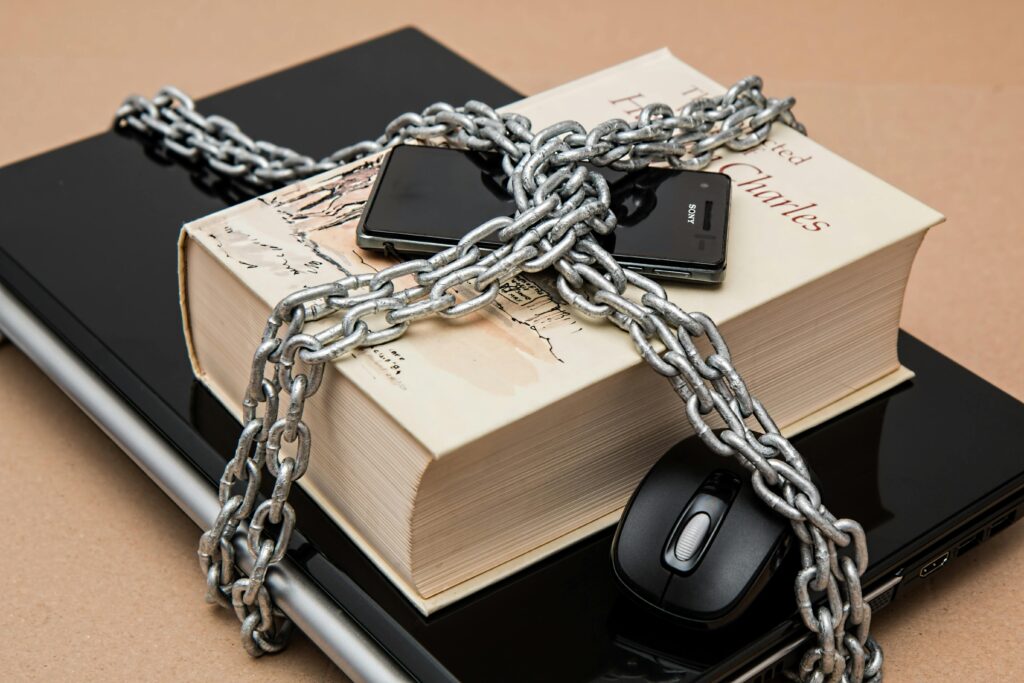
In today’s digital world, we rely on the internet for many tasks, but this also brings risks. Cybersecurity and data privacy are crucial as more personal information is stored online, making it essential to protect yourself from growing cyber threats.

What is Cybersecurity?
Cybersecurity refers to the protection of computer systems, networks, and data from digital attacks. These attacks can come in many forms, including hacking, phishing, and malware, which can harm both individuals and businesses. Cybersecurity aims to prevent unauthorized access to sensitive information and keep systems safe from disruptions or damage.
When a hacker breaks into a computer system, they may steal, alter, or destroy valuable data. In some cases, cybercriminals may hold the information hostage until a ransom is paid, known as a ransomware attack. For businesses, these attacks can lead to huge financial losses, damaged reputations, and legal consequences. For individuals, it can result in stolen identities, lost money, and privacy violations.
What is Data Privacy?
Data privacy, on the other hand, is about protecting the personal information you share online. It includes the practices, laws, and rules that govern how your data is collected, stored, and used. Data privacy ensures that your sensitive information, such as your name, address, credit card number, and even personal preferences, is kept safe and used only for purposes you have agreed to.
For example, when you sign up for an online service, that service collects data about you. How that data is handled, shared, or sold is where data privacy laws and policies come into play. The goal is to prevent your data from being misused or falling into the wrong hands.

The Importance of Cybersecurity and Data Privacy
Both cybersecurity and data privacy are essential to our digital lives. Without proper cybersecurity measures, cybercriminals can exploit weaknesses in systems and gain access to personal or business information. Without data privacy, our sensitive details may be exposed, misused, or sold without our consent.
For individuals, poor cybersecurity and lack of data privacy protection can lead to identity theft, fraud, and financial loss. For companies, data breaches can result in loss of customer trust, legal problems, and expensive recovery efforts. Ensuring both cybersecurity and data privacy helps protect people and businesses from these risks.
Common Cyber Threats to Be Aware Of
There are several types of cyber threats that individuals and organizations should be aware of:
-
Phishing Attacks: These are attempts to steal personal information by tricking people into clicking on fake links or downloading malicious attachments. Phishing emails often look like legitimate messages from trusted companies or individuals.
-
Malware: Malware, short for “malicious software,” is designed to harm or exploit computers. This includes viruses, worms, and spyware. Malware can be installed when you click on harmful links or download infected files.
-
Ransomware: In a ransomware attack, cybercriminals lock your files or entire computer system and demand a ransom payment to release it. These attacks can paralyze businesses and cause major disruptions.
-
Data Breaches: A data breach happens when sensitive information is accessed or stolen from a system. This could involve personal details like credit card numbers, addresses, or health information.
-
Password Attacks: Cybercriminals may try to steal or crack passwords to gain unauthorized access to accounts. This can be done through various methods like brute force attacks or password guessing.
How to Protect Yourself and Your Data
There are several simple yet effective ways to protect your cybersecurity and ensure your data remains private:
-
Use Strong Passwords: Always use unique, strong passwords for your online accounts. A strong password should contain a mix of letters (both uppercase and lowercase), numbers, and symbols. Avoid using easily guessable information, like your name or birthdate.
-
Enable Two-Factor Authentication (2FA): Two-factor authentication adds an extra layer of security. It requires not only a password but also a second form of verification, like a code sent to your phone. This makes it harder for hackers to access your accounts, even if they have your password.
-
Install Antivirus Software: Antivirus software helps detect and block harmful programs like malware. Make sure your antivirus software is up to date and scan your computer regularly.
-
Be Careful What You Click On: Avoid clicking on links in unsolicited emails, messages, or pop-up ads. These could lead to phishing websites or download malware onto your device.
-
Use Encrypted Connections: When browsing the internet, especially on public Wi-Fi, make sure the website’s connection is encrypted (look for “https://” in the URL). This helps protect the information you send and receive from being intercepted by hackers.
-
Review Privacy Settings: Regularly check the privacy settings on your online accounts. Limit the amount of personal information you share, and make sure you understand how your data is being used by the websites or services you use.
-
Be Wary of Sharing Personal Information: Be cautious about what personal details you share online, especially on social media. Avoid sharing sensitive information like your full name, address, or credit card numbers unless you’re sure it’s secure.
-
Back Up Your Data: Regularly back up important data, such as documents, photos, and videos. This will help you recover your information in case of a cyberattack or system failure.
Legal Aspects of Data Privacy
Governments around the world have introduced laws to protect data privacy. The General Data Protection Regulation (GDPR), for example, is a law in the European Union that gives individuals more control over their personal data. Many countries, including the United States, have also introduced data protection laws to ensure companies are transparent about how they collect and use consumer data.
These laws require companies to be clear about how they store and process your personal information and give you the right to ask for your data to be deleted or corrected.
Cybersecurity and data privacy are crucial to keeping our online lives safe and secure. With increasing threats from hackers, malware, and other cybercriminals, it’s important to take steps to protect yourself. By using strong passwords, enabling two-factor authentication, being cautious with emails and links, and understanding your data privacy rights, you can reduce the risks and keep your personal information secure. Stay informed, stay vigilant, and protect your digital world.
- Earn Passive Income: Build a Baseball eBook for Families - August 4, 2025
- Turn Your First $1K Baseball Hustle Cash Into Wealth - August 4, 2025
- $10K/Month Baseball Academy? Setup & Revenue Blueprint - August 1, 2025







